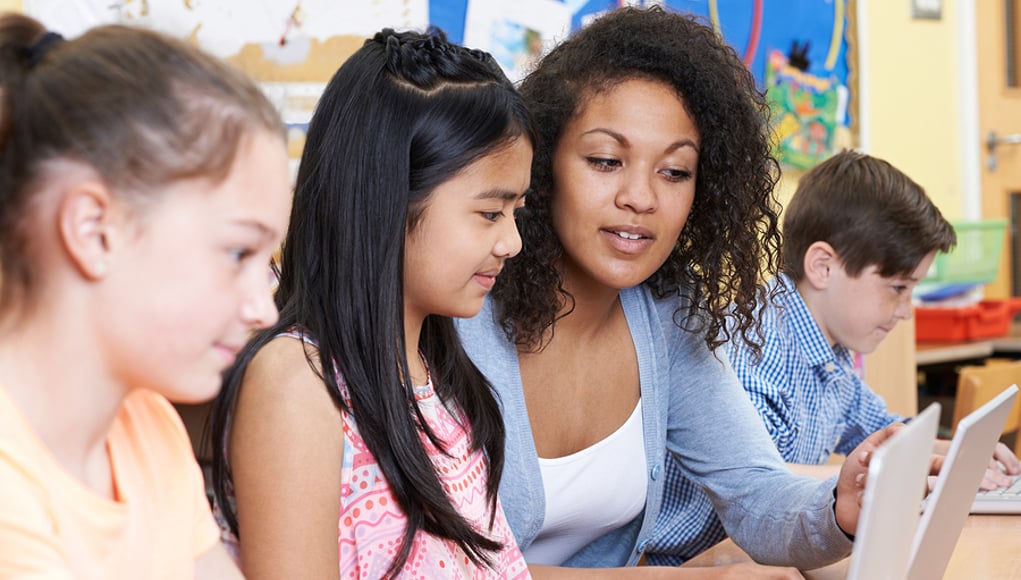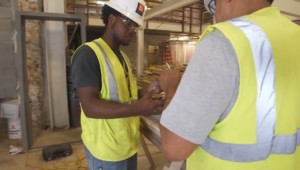3 Ways to Help Educators Develop Social Emotional Skills

By Jessica Lovins
We are not born with social-emotional skills. They are formed in childhood, cultivated throughout our lives, and can continue to grow and evolve. Therefore, in order for children to learn and witness social-emotional learning (SEL), it must begin with adults. The organization I work for, WINGS for Kids, believes that helping adults develop their social-emotional skills allows them to support, engage, and teach these critical life skills to students. After all, you can’t teach what you don’t know.
The process of training and supporting adults must be intentional. By providing ongoing trainings and professional development opportunities rooted in SEL, we challenge and support our staff to focus on their own social-emotional skills. When adults understand their own social-emotional development, they can then reflexively infuse it in every interaction with kids and with each other. It has been a truly transformative experience for our staff and for our program—as well as for other afterschool programs we’ve worked with.
A few months ago, WINGS led an SEL training with afterschool professionals from the Boys & Girls Clubs of Metro Atlanta (BGCMA). Ashley Hill, Director of Social and Emotional Development at BGCMA, shared that, as a result of these trainings, the clubs’ leaders decided to develop an SEL-informed culture and created a plan to integrate SEL into their clubs.
Ashley and her team found that supporting social-emotional development among their staff is a necessary first step to bring these skills to kids. Her team found that even the best planned art project or activity won’t be successful if you don’t have the right culture and climate in the room. This realization empowered the BGCMA staff to seek ways to ensure they are creating a supportive and engaging environment.
To create this positive culture, Ashley’s team has implemented behavior management strategies to create safe spaces where kids are free to be who they are so SEL can really take flight. For example, one of their clubs has begun playing games at the start of the day to gauge what kind of day kids are having when they show up at the program. This helps staff to be proactive with knowing how they can meet kids where they are and better support all kids that day.
All schools and afterschool programs have the potential to transform the way educators and adults approach SEL and infuse it into their daily lessons and activities. Here are three ways you can get started on helping educators develop social-emotional skills.
- Infuse social-emotional skill-building activities into professional development sessions. We intentionally plan activities for kids that foster the development of their social-emotional skills. Consider ways you can bring this intentionality into professional development opportunities for educators. For example, during professional development trainings, we have participants complete each of these three sentences – “Something I’m good at is…,” “An emotion I felt today is…,” and “The last mistake I made was…” This activity engages educators in practicing their own self-awareness by acknowledging their emotional state, strengths, and weaknesses, and helps them start to view SEL as more than just “being kind to others.”
- Create an SEL vocabulary for adults and kids to use. We might use words like “self-efficacy” and “growth mindset” when talking about SEL, but these abstract concepts aren’t always easy to understand – especially for kids. Creating a seamless connection between adults’ social-emotional development and that of students requires a kid-friendly vocabulary that makes SEL accessible and easy to understand for all. For example, say “choices I make” instead of “responsible decision-making,” or “stepping into their shoes” instead of “empathy,” in your conversations with staff and with kids to develop an SEL culture and language that everyone can be a part of.
- Encourage self-reflection. Self-awareness is one of the five core competencies of SEL, and there’s no better way to develop this and other social-emotional skills than through some self-reflection. In our SEL trainings, after a brief introduction to the five competencies (self-awareness, self-management, responsible decision-making, relationship skills, and social awareness), we challenge participants to reflect upon and assess their own social-emotional skills. They are empowered to recognize their areas of strength and opportunities for growth in their own social-emotional development.
Surveys tell us that educators welcome support around social-emotional learning: in fact, 82 percent of teachers expressed a desire to receive SEL training. With these three simple ways to help adults develop their own social-emotional skills, we can give our students SEL role models who can effectively teach them the skills they need for success now and in the future.
For more, see:
- How To Get Students Talking About Their Own Social-Emotional Learning
- Integrating Cognitive, Social and Personal Competencies
- Creating the Right Culture for Social and Emotional Learning
Jessica Lovins is a social-emotional learning coach at WINGS for Kids, a nationwide afterschool program focused solely on bringing SEL to at-risk kids. Connect with them on Twitter: @WINGSforKids
Stay in-the-know with all things EdTech and innovations in learning by signing up to receive our weekly newsletter, Smart Update.




Ravinder Thakur
Developing social-emotional skills is crucial for both educators and students. It not only helps educators create a positive classroom environment but also enables them to understand and support their students' emotional needs. The three ways mentioned in the blog - professional development, coaching, and peer-to-peer learning - are effective ways to enhance educators' social-emotional skills.